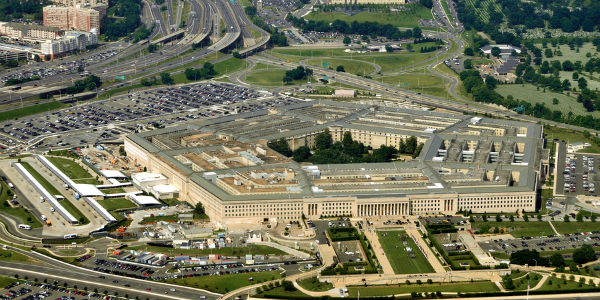Giving back to those who served

Nestled on the southern rim of the San Francisco Bay in central California, the City of Palo Alto is a well-known business mecca and headquarters for several Silicon Valley technology companies. Additionally, Stanford University, a world-class research and teaching institution, calls the area home, as does the Veterans Administration Palo Alto Healthcare System (VAPAHCS), serving veterans from 13 states within the Western region of the US, including the Pacific Rim. Because of its affiliation with the Stanford University School of Medicine, the VAPAHCS is renowned for its expertise in a wide range of medical services, especially the Polytrauma Rehabilitation Center.
Palo Alto and the surrounding region also has a reputation for having one of the highest costs of living in the country. Lodging in the area can easily run into the hundreds of dollars for a single night’s stay. Such high costs have become a growing concern among the many veterans and their caretakers who visit the VA for outpatient treatments. With the facility’s housing unit on campus continuing to fall short on its ability to provide overnight lodging, more and more veterans are found skipping treatments and even sleeping in their cars overnight in the parking lot.
Lisa Freeman, director of the VAPAHCS, knew something had to be done, but what? The solution quickly became apparent to her one day, after seeing a newly created hospice facility at the Walter Reed National Military Medical Center in Bethesda, Maryland, donated by the PenFed Foundation. Freeman knew she had found the answer and it involved the nationally recognized PenFed Foundation.
A tradition of charitable support and financial literacy
Launched in early 2001, the PenFed Foundation is a nonprofit organization working to meet the unmet financial needs of the military personnel and their families in the areas of financial literacy, housing and support for the wounded.
One of the foundation’s most popular programs is its Asset Recovery Kit (ARK), designed to offer a no-interest alternative to payday lenders. Through ARK, anyone on active duty can walk into any of the Foundation’s partner credit unions and for a $5 application fee receive a loan in an amount up to $500 based on their signature alone. There are no additional fees or interest.
If the loan cannot be repaid within the agreed upon time, the request can be made to roll it over. To do so, the active duty member must first obtain financial counseling and present the certificate upon completion of the program. At that point the loan can roll over up to three more times – with no interest and no fees. The foundation guarantees its partners against loss, and pays for the financial counseling and advertising.
“If one of the partners were to suffer a loss on one of these loans, they essentially send us a bill at the end of the month and we write them a check,” says Christopher Flynn, President of the Foundation. “There is no financial risk at all. We pay for the financial counseling if needed and we pay for the advertising on a particular base to say that the credit union offers this service.”
Since the program was launched, the Foundation has made more than 6,500 ARK loans through its partners.
In addition to ARK, the Foundation also helps those in the Department of Defense, the Department of Homeland Security and veterans in the purchase of their first homes.
According to Flynn, help comes in the form of a grant that contributes on a 3-to-1 matching basis. As long as a participant can qualify for a first time home buyer loan with any lender, they are eligible. Participants put in $1 and the Foundation contributes $3, up to a total of $5,000. To qualify, participants must attend a HUD first-time homebuyer’s course.
“This year we will have done a million dollars-worth of these grants across 40 states,” Flynn reports.
And there’s more. Through a partnership with the Federal Home Loan Bank of Atlanta, the Foundation also helps low-to-moderate income veterans with grants of up to $15,000 for use in refurbishing their homes. Flynn reports that the foundation has done approximately $450,000 worth of these grants, with the highest applicant income per family at about $34,000.
The Lee and Penny Anderson Defenders Lodge
The origin of the Foundation’s involvement and support of the new Defenders Lodge in Palo Alto can be traced back to its own Military Heroes Fund.
“When the first wounded were being brought to Walter Reed in late 2001, many arrived with nothing, not even a shirt on their back,” Flynn recounts. “We were asked to help and so we provided sweat suits, sneakers and toiletries.”
Later as the number of wounded increased, the Foundation saw a need for daycare.
“Families arrived to see their loved ones and, since spouses didn’t want to bring the kids into the hospital, we started to subsidize daycare for the families,” he said.
Once the wounded soldiers were transitioning out of the military to VA benefits, the Foundation noticed that they seemed to be falling into a bureaucratic hole. That’s when the organization decided to offer grants to help carry vets through the transition. These grant monies would help to cover the mortgage, a car payment or even the installation of a wheelchair ramp in the home. To qualify, the veteran simply has to participate in some type of financial counseling.
According to Flynn, the Military Heroes Fund will distribute about a half-million dollars in grants this year alone.
However, it was the lack of a hospice facility at Walter Reed that really sparked the start of an association with the VAPAHCS for Flynn and his board.
“When we visited the wounded at Walter Reed, we noticed there was no hospice. So we teamed with a few corporations and local defense contractors to build two hospice rooms at the medical facility,” he explained.
The effort was well-received and when Lisa Freeman saw the new hospice, she approached the Foundation about the challenge she faced with veterans sleeping in their cars. Immediately the idea was hatched to do something similar in Palo Alto.
“We decided to bring in a hotel architect, not a VA architect, to create a 52-room hotel with 104 beds for the veterans and their caregivers,” Flynn recounted.
Flynn further explained that the success of the project was attributed to a public-private partnership the foundation formed with the Department of Veterans Affairs.
“We teamed up with the Department of Veterans Affairs to fund and build the facility. They are doing the outside work, hooking up all the utilities and handling the landscaping. Overall, it’s a $17 million-dollar project. The building is $11 million, which we’re funding through private donations, and the outside work is estimated to run about $6 million, funded by the Department of Veterans Affairs.”
Scheduled to open in early 2014, Flynn and Freeman expect the lodge to accommodate roughly 20,000 outpatient visits each year, saving the veterans and the VA about $3-to-$4 million a year in lodging expenses alone. And, unlike Fisher House where the intention is to support families on a long-term basis, the Defenders Lodge is designed for short stays of one to seven days.
A flagship project
In reflecting on what it means to support and build the Defenders Lodge, Flynn noted, “My dad used to say, if you are successful, give back. I’ve been a banker most of my life and I’ve been with the credit union for 13 years. This is giving back to the community. This is a flagship project for credit unions that no one else is doing. Somewhere in a credit union’s constituency, someone is going to be touched by the Defenders Lodge.”
For more information on the Defenders Lodge, visit www.defenderslodge.org or e-mail Chris Flynn directly at ChristopherJ.Flynn@penfed.org.





